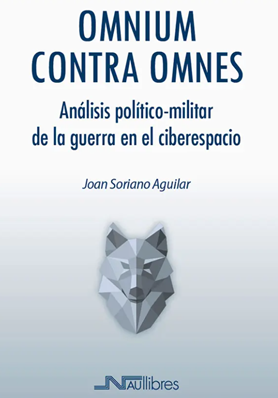
In the previous article we commented on the impact of the possibility of anonymity in cyberspace. In this post we are going to investigate this issue and expose the details that explain the existence of anonymity, as well as the consequences in the geopolitical context.
Anonymity
The five factors make it impossible to directly attribute a cyberwarfare action to a nation are the following:
1. The fact that the virtual environment is made up of information allows all types of users to create and modify artifacts, limited only by permissions. This means that there is no complete translation of the physical element to the virtual one and, therefore, there is no total control over it. Consequently, it is not possible to guarantee the immutability of the elements of the environment, i.e. what actions have been performed or by whom.
2. There is the factual impossibility of assigning a virtual profile of a nation. The problems related to attribution, based on the previous point, make it impossible to relate two campaigns separated in time only on the basis of their tactics, techniques and procedures. Even with an indicator such as the hash, there is no 100% guarantee that it is exactly the same actor, since the code could have been stolen or manipulated beforehand.
3. One of the foundations of attribution is based on the geopolitical interest of the victim, finding that potential competitor among those countries with offensive capabilities. The emergence of a multipolar context in international relations, together with globalization, which allows commercial struggle all over the planet, means that competition between nations will not be limited to their neighbors. All nations will be in a position to compete with anyone.
4. Traceability from the victim to the source of the action is also very complicated due to the existence of intermediate nodes and laxer jurisdictions in terms of control of the virtual environment.
5. Arquilla and Ronfeldt’s premises on Network Warfare establish the possibility of nodal distribution, i.e., decentralization of the operation through the physical separation of the groups. This makes it possible to establish a new barrier in the physical, allowing States not to become directly involved in the activity and bringing into play the subcontracting of private organizations.
These five factors give rise to the following consequences.
Political realism
If we analyze Immanuel Kant’s pamphlet “Perpetual Peace“, in it the establishment of an order of relations between nations based on regulation was carried out. For this purpose, what is known as supranational bodies would appear, with the aim of carrying out regulation.
However, these control capabilities would be based on the detection of attack capabilities within the physical environment where both the perpetration of the action and the consequences are evident.
However, they are not so within the virtual environment.
Therefore, given the impossibility of supranational bodies to establish attribution and, consequently, a regulation within the virtual framework, the pillars of the political idealism that has underpinned international relations for more than 60 years are being seriously weakened.
The emergence of cyberspace allows States to carry out actions that affect the international political order without being penalized, being limited only by their will or by the technical inability to carry them out.
In other words, it grants States the full executive capacity to carry out actions, which can be understood as a paradigm of political realism and a return to a pre-Westphalian framework of relations between nations.
The theoretical considerations raised in this article are set out in full in the book “Omnium contra omnes. Análisis político-militar de la guerra en el ciberespacio” (Spanish).
